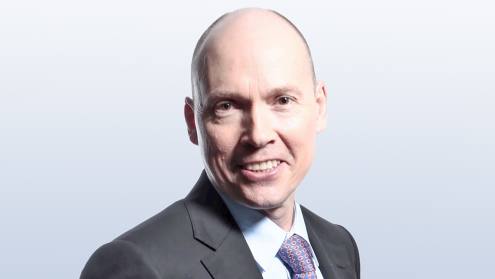The fund management industry does not serve its customers well. Many of the largest organisations have lost sight of what is best for the client, rather than their own company. There is no other industry in the world where so many operators fail in a multiple of the basic business disciplines of professionalism, efficiency, transparency and honesty, yet make so much money. Given the power fund managers have over people’s lives in terms of their savings, and therefore their quality of life, the industry needs an urgent overhaul. People trust their life savings and financial futures to these organisations that often are no more than marketing machines, designed to extract the maximum sum from clients for the minimum work.
In fund management, size creates drags on performance, rather than lower costs. Fewer portfolios or funds to manage means more focus and generally better performance. Less complex investment products normally mean more understanding and more performance. Fewer people employed in bureaucratic investment committees normally means more timely dynamic decisions.
Fund management companies do not need to run expensive funds for clients, they do not need huge teams of fund managers or analysts to make decisions, they do not need to waste their clients’ money on inflated dealing costs or superfluous research. But they do all these things because creating mystique and a sense of complexity seemingly justifies high fees. The travesty is that clients are only aware of the true costs of their investment after investing, when they receive their statements. Clients receive less, while the fund manager receives more, even if they are underperforming against a benchmark index.
Technology enables transparency
On technology, again, the fund management industry is alone. Technology has brought transparency, efficiency and cost benefits to many industries, but technological advances have not been embraced by investment management. Technology and the internet can be used to improve client service, transparency and access by revealing exactly where a client’s money is invested and the entire fee structure attached to an investment. It is no longer acceptable that in this modern age most fund managers refuse or have not bothered to reveal to their clients the full underlying investments in a timely manner.
In terms of fees, what goes on in fund management would be illegal in any other industry. Fund managers rarely reveal the entire cost of investing to their clients. We call this abomination the 'iceberg principle' where the fund manager will reveal their annual fee and sometimes the attached fund expenses, but all other fees are hidden. It is akin to buying a car, with the manufacturer saying you have to take it on the motorway to discover the fuel consumption, 0-to-60 and the top speed. If you add up these often hidden fees, including front-end fees, back-end fees, dealing costs, performance fees and a myriad of other costs, our research reveals that fund managers are on average revealing just the top 30% to 40% of fees in their iceberg.
This is why the exchange-traded fund (ETF) industry has grown so much; it offers investors the ability to do it themselves at much lower cost, greater spread, less risk and more transparency and performance. ETFs have grown by applying this ‘less is more’ principle with great success. I agree there are now more esoteric, complex ETFs being launched, but using an expert investor offers a robust solution.
The tide is turning
Our firm has chosen to invest only in the safest, most liquid ETFs, which are continually and actively managed, through an asset allocation model that makes small tactical changes aimed at achieving outperformance in a stable, incremental manner. The largest clients within SCM Private are the founders, and they have exactly the same portfolios as every other client and deal at exactly the same time and pay exactly the same fees. We eat from the same pot as our clients. There is no lock-in period and if clients wish to liquidate a percentage of their portfolio, or withdraw, we aim to have cash back in their accounts within three to five working days.
Everything we do should be possible for any of the larger, more established brand names in the industry. It will just need someone to make the first move, and put their head above the parapet. For too long, the industry has been frightened of operating in a transparent, fair fee environment.
But the tide is turning. Recent results reported by several of the largest investment houses have disappointed shareholders as they have highlighted reduced growth prospects due to pressure on their margins from new lower-cost funds. The fund management industry has forgotten its first principle – it is entrusted with people’s hard-earned savings and clients deserve to know how their money is being invested.
Alan Miller is founding partner of wealth management boutique SCM Private and previously held senior positions within Gartmore, Jupiter and New Star











